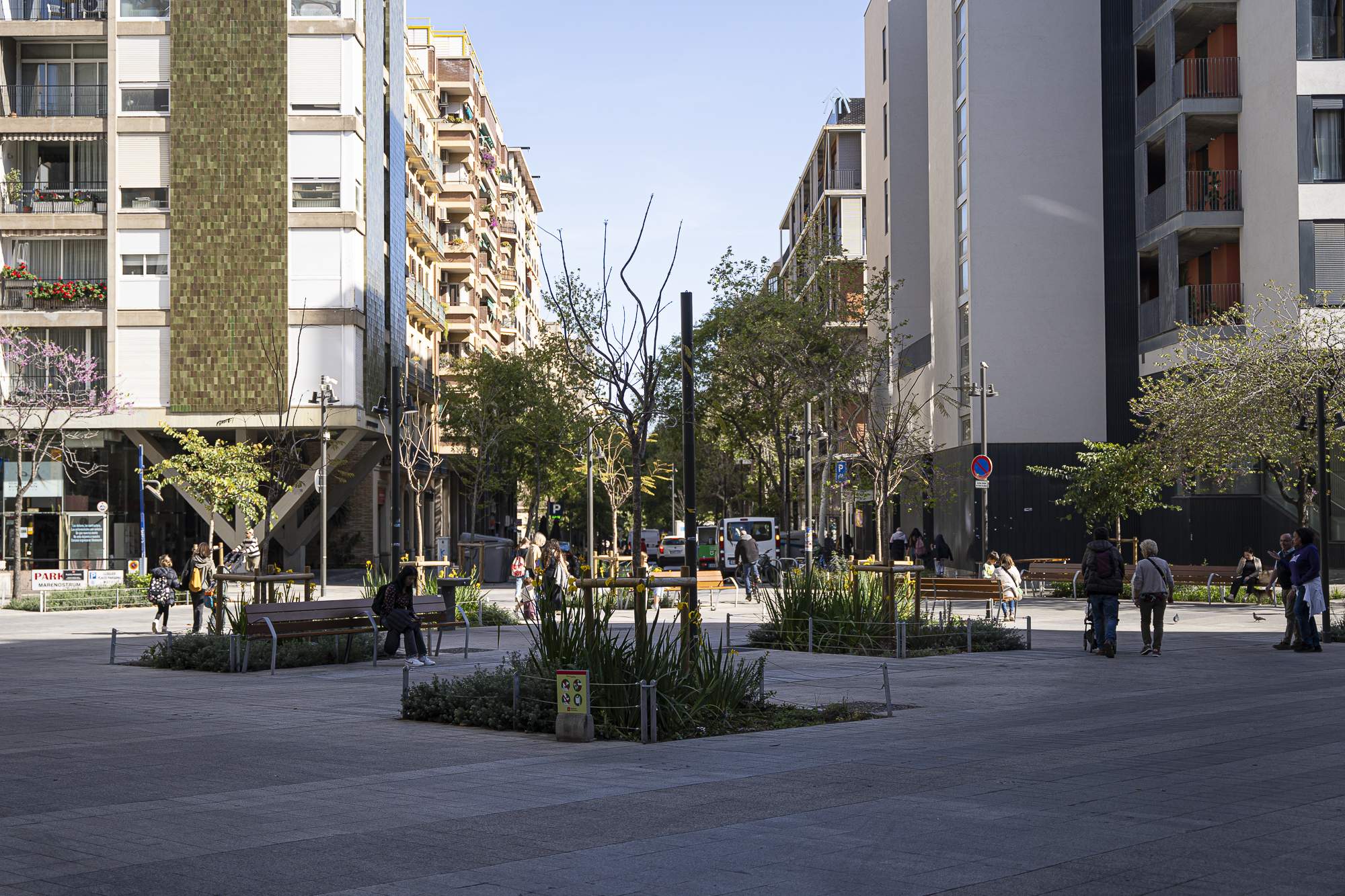Barcelona's deputy mayor for urban planning, Laia Bonet, has ruled out further replication of the city's controversial Green Axes or "Superblock" model for pedestrianizing city streets due to the "costs and dynamics of coexistence" of the plan, when asked about future such developments this Thursday at the presentation of the city's Setmanes d'Arquitectura (Architecture Weeks) event. The Socialist councillor said that the model employed in the redevelopment of parts of the city's Eixample district would not be extended to other districts of the city: "It seemed to us that due to both costs and the dynamics of coexistence of uses, we weren't able to imagine that this was the model". In fact, the cost to the council of maintaining a "pacified" street like the Consell de Cent axis, which runs across 20 city blocks, is up to ten times more expensive per block than that of an ordinary street.
Bonet said that the municipal government has the will to carry out many more operations to pacify and remove traffic, although it would need to "find a model of pacification that is reproducible, replicable and scalable throughout the city", rather than just in the Eixample. In this regard, she added that the council is working on the issue, after evaluating the operation of the Green Axes a year after their implementation - during the term of former mayor and Barcelona en Comú leader, Ada Colau - and explained that they will present "proposals to be able to make progress with these street pacifications". On whether there will be changes to the streets already altered and pedestrianized, Bonet replied that those aspects that have not survived for the year since the Consell de Cent axis was opened will have to be corrected and repaired, although she defended the work done by the City Council's teams: "What's done is done."
Two court rulings
Municipal sources consulted by Europa Press agency have reported on a court second ruling on the green axes, which states that the council "should have made a modification of the General Metropolitan Plan" for the city when it decided to transform these streets. The first ruling, delivered in September 2023, arose from a complaint by retailers' association Barcelona Oberta, which following the court's decision in its favour, softened its tone and called for the urban planning work already done to be left in its new state, an opinion which caused perplexity. This second ruling, however, is from the same complainant, and has brought the same result.
The council assures that it has always defended the legality of what has been done and the approach taken by the municipal technical and legal services, and it is to present an appeal "on a principle of responsibility and institutional continuity", as it did with the previous ruling. The city administration defends the legality of the action, although it considers that it is not advisable to continue with the model, which "is not applicable in a general way in the Eixample, both due to its impact on mobility and the management needs for public space", in addition to being an expensive model to maintain, the same sources have stated.

